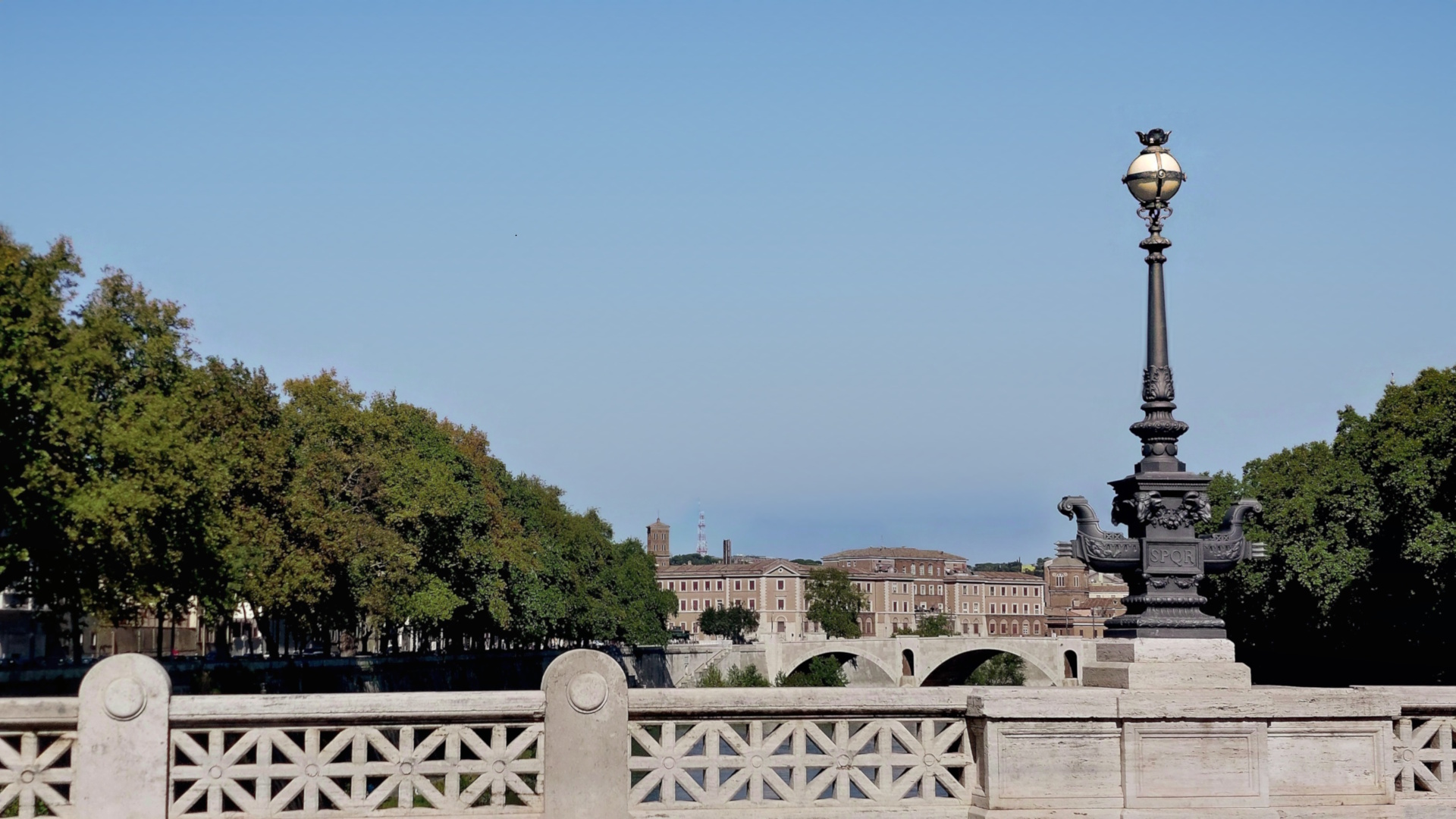
En hommage à un père de la patrie
Outre le grand ensemble monumental situé sur les pentes de la colline de l'Aventin, du côté donnant sur le Circus Maximus, la place et l'avenue du quartier della Vittoria, à Rome, la mémoire de Giuseppe Mazzini, l'une des figures majeures du Risorgimento italien, est également confiée à l'un des ponts conçus après l'unification de l'Italie, à la suite des grandes transformations urbaines qui ont accompagné le passage du XIXe au XXe siècle dans la ville.
De Trastevere à via Giulia
Connu également sous le nom de « Gianicolense », car il est situé sur les pentes du Janicule, le pont relie le Rione Trastevere, à la hauteur de via della Lungara, dans le Rione Regola, en correspondance avec la via Giulia. Selon la première proposition présentée par l’ingénieur Angelo Vescovali (à l’époque chef de l'Ufficio Idraulico Municipale et auteur des plans de Pont Garibaldi, Pont Palatino, Pont Umberto I, Pont Regina Margherita et Pont Cavour), le pont aurait dû être en fer, mais, en 1887, le projet choisi fut celui des ingénieurs Viani et Moretti pour un pont en maçonnerie. Commencés en 1904, les travaux ont été achevés quatre ans plus tard : le pont a été ouvert aux piétons le 19 janvier 1908 et aux véhicules en avril de la même année.
Un pont au charme discret
Entièrement revêtu de travertin, le pont franchit le Tibre avec trois grandes arches et mesure 106 mètres de longueur sur 17 de large. Souvent utilisé comme point de vue pour photographier le pont Sisto, plus célèbre, qui n'est qu'à 600 mètres, il est certes discret, mais ses lignes sont adoucies par d'élégants parapets ajourés et de hauts lampadaires en fonte dont les bases sont décorées de têtes de béliers et de rostres de bateaux. Le projet exécutif et les modèles en bois des chandeliers ont été réalisés par la renommée maison florentine de Mariano Coppedè, père du plus célèbre Gino, qui, quelques années après l'achèvement du pont, s'occupa du projet des bizarres bâtiments du complexe appelé « quartier Coppedè ».
Photo Turismoroma
Informations
 Condividi
Condividi
Location
Pour connaître tous les services d'accessibilité, visitez la section Rome accessible.












































